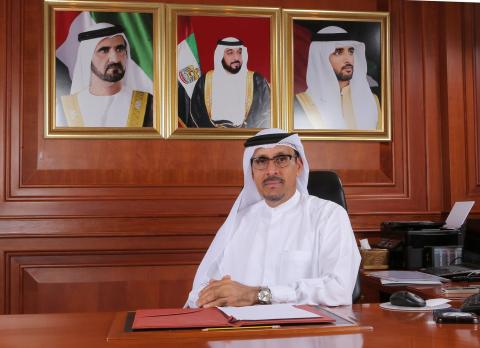
Al Mansouri: ‘We are committed to transform wise leadership’s vision of making happiness & positivity a lifestyle & a governmental commitment’
In an initiative to lay the foundations for happiness and positivity, Dubai Courts has recently released the results of a first-of-its-kind initiative at both the local and federal level called the ‘Leader’s Ability to Spread Positive Energy’ survey. The move is a part of its commitment to support the national effort of making happiness as a key humanitarian objective, a comprehensive approach for the development and well-being, and a way toward a better world. In total, Dubai Court’s 473 male and female employees participated in the study that was based on a clear criteria and scientific tools for measuring efficiency level of the organizational units’ 12 managers in terms of spreading positive energy among employees. The survey will help in identifying the areas that needs to be redressed to ensure leaders remain motivated, optimistic and positive which is the first step towards success, excellence and leadership.
The results of the survey varied between super ability and relative ability, and an excellent level and average level of positive energy among administrative staff. Based on the registered results, the recommendations focus on the adoption of the standards and the implementation of specialized workshops through which leaders and senior management are motivated and trained to effectively disseminate positive energy among the staff. This will produce tangible results in promoting a sense of job safety and satisfaction; instilling loyalty towards the organization; raising the level, efficiency and effectiveness of performance; and encouraging creative initiatives to serve Dubai Court’s vision of building ‘Pioneering and Internationally Distinguished Courts.’
H.E. Taresh Eid Al Mansouri, Director General of Dubai Courts, stated that the ‘Leader’s Ability to Spread Positive Energy’ survey is a part of Dubai Court’s qualitative initiatives which aims to transform the vision and directives of H.H. Sheikh Mohammed Bin Rashid Al Maktoum, Vice President and Prime Minister of the UAE and Ruler of Dubai, to make happiness and positivity a lifestyle, governmental commitment, and a real spirit that unites the UAE. He said: “The implementation of a unique survey on the local and federal government levels reaffirms that we are moving in the right direction of empowering and developing national human resources to achieve a high level of efficiency, innovation and determination. This will aid them in leading the judicial system to new heights of excellence and leadership, ensuring customer happiness and promoting community welfare.”
“The survey represents a strong start toward developing standards and tools for measuring happiness as the key to the National Happiness and Positivity Programme. It includes happiness and positivity in the government policies and services; adopting values of positivity and happiness as a lifestyle; and making the UAE a pivotal player in supporting international efforts to spread happiness and positivity. We remain committed in our efforts as we look forward to study the recent results and determine the best ways to improve the ability of Dubai Courts’ administrative staff in disseminating positivity, making customers and employees happy, and building a community that enjoys security, safety and peace of mind,” concluded H.E. Al Mansouri.
The ‘Leader’s Ability to Spread Positive Energy’ survey has defined the level of ability of Dubai Courts’ senior management and leadership through a set of 40 questions in accordance with documented scientific standards and basis. The total score, based on 40 questions, is 200 which is distributed over 5 levels of ability to spread positive energy and governed by five estimation grades of ‘Distinct,’ ‘Advanced,’ ‘Average,’ ‘Modest’ and ‘Low.’
Categories
- Log in to post comments
